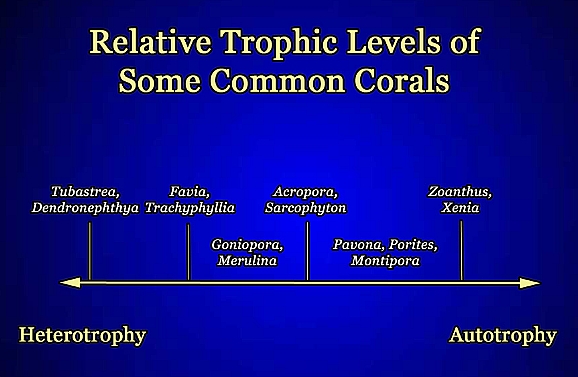Reading along in Part 1, Eric Borneman's "Reef Food" Article for ReefKeeping Magazine:
"What we provide to, and what is provided by, our aquariums are extremely limited in both quality and quantity. Yet, many of us are troubled by high nitrate and phosphate readings. As a result, many aquarists resort to minimal feedings, in an attempt to keep water quality manageable. In terms of aquaria, which are closed systems, we do not have the luxury of billions upon countless billions of gallons of water to dilute and wash away high nutrient loads, nor do we have the bountiful biodiversity (for the most part) that maintains the "nutrient poor" water quality of a coral reef. In return, when our water tests "high" for nutrients, we are often plagued by those aesthetically undesirable organisms that are most adept at utilizing such resources as dissolved organic and inorganic material; the algae and cyanobacteria.
Filamentous, slime, smear, and macroalgae are highly efficient at absorbing such material, and they grow rapidly. In most circumstances, the microalgae and macroalgae, while very useful as part of turf scrubbers or small algal communities within a reef, often become problematic as they overtake the more aesthetically and, in some ways, functionally desirable crustose red algae (coralline), corals, and other sessile invertebrates. It should be noted, though, that these organisms might also be capable of significant nutrient uptake. Bacteria and phytoplankton are also extremely proficient at removing this material. All these organisms are quite valuable to our captive reef communities. They not only "purify" water by the utilization of nutrients, but also are all part of a beneficial food web, both in coral reefs and in aquariums."
This doesn't yet talk about organic and inorganic nitrates and phosphates, but I thought it was interestienough to bring up the subject.




